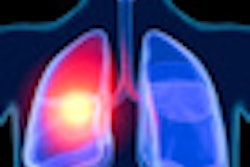Interleukin Genetics and the University of Michigan School of Dentistry have completed patient enrollment for a clinical study that may produce risk-assessment tools to guide preventive dental visits and reduce the adverse outcomes of periodontal disease progression.
If the study determines that low-risk patients are not adversely affected by one cleaning per year, more personalized preventive measures for the management of periodontal disease in low-risk individuals may be possible, according to William Giannobile, DDS, MS, DMedSc, chairman of the department of periodontics and oral medicine.
Twice-a-year dental visits for adults, a practice that has been promoted for more than 30 years, has little clinical support or evidence to refute its necessity, he added.
The researchers enrolled 5,400 consenting adults in the clinical trial, using a large dental claims database to identify patients with more than 15 consecutive years of documented oral health history. Each provided a DNA sample and information on other risk factors to allow them to be classified as either low-risk or high-risk for periodontitis progression.
Interleukin's PST Genetic Test identifies individuals with increased risk for severe and progressive periodontal disease and tooth loss based on a proprietary panel of genetic variations that predispose an individual to over-express inflammation, the company explained in a press release.



















